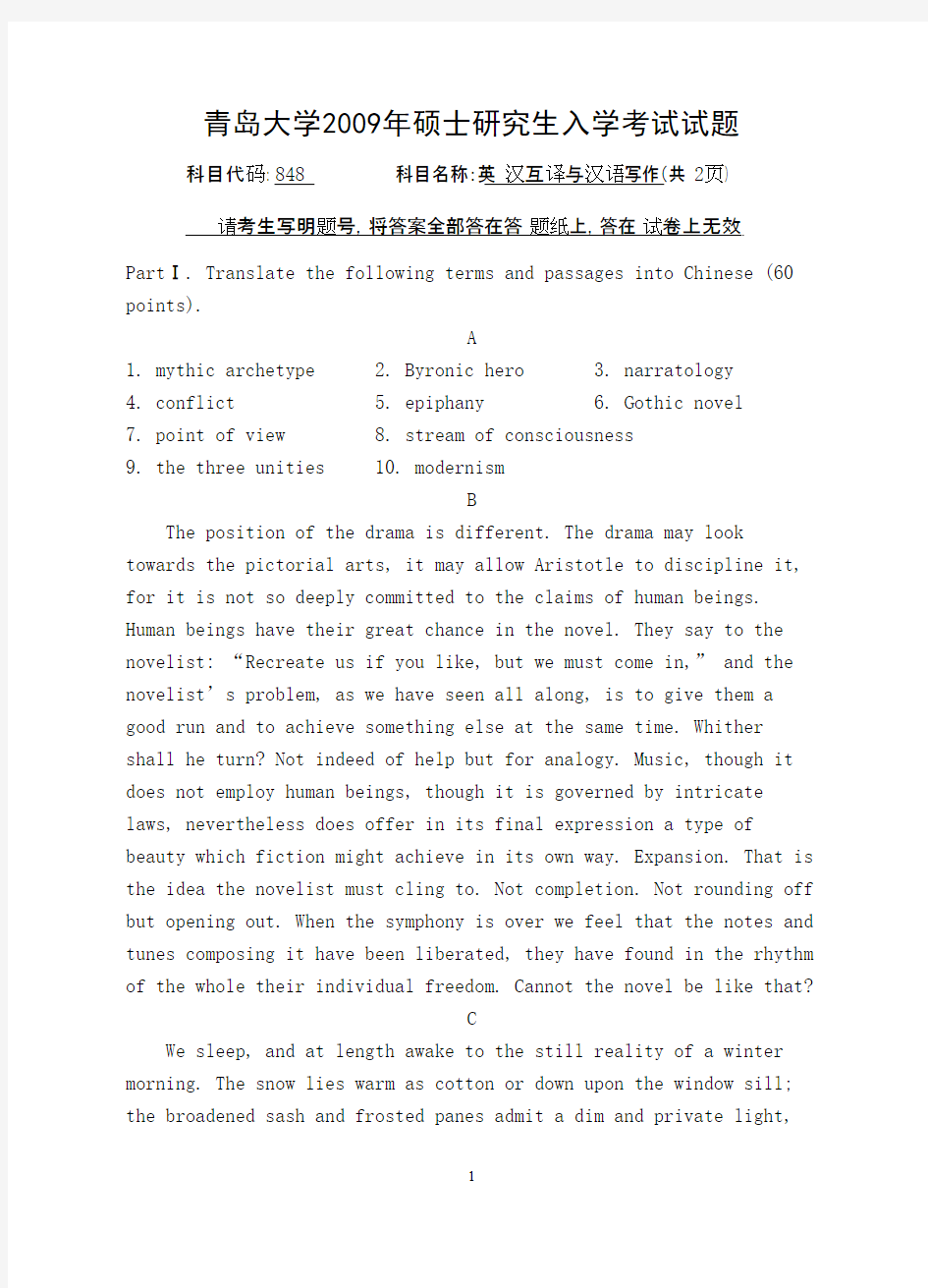青岛大学考研历年初试真题之英汉互译与汉语写作2009,2011--2014年考研真题

青岛大学2009年硕士研究生入学考试试题
科目代码:848 科目名称:英汉互译与汉语写作(共2页)
请考生写明题号,将答案全部答在答题纸上,答在试卷上无效
PartⅠ. Translate the following terms and passages into Chinese (60 points).
A
1. mythic archetype
2. Byronic hero
3. narratology
4. conflict
5. epiphany
6. Gothic novel
7. point of view
8. stream of consciousness
9. the three unities 10. modernism
B
The position of the drama is different. The drama may look towards the pictorial arts, it may allow Aristotle to discipline it, for it is not so deeply committed to the claims of human beings. Human beings have their great chance in the novel. They say to the novelist: “Recreate us if you like, but we must come in,” and the novelist’s problem, as we have seen all along, is to give them a good run and to achieve something else at the same time. Whither
shall he turn? Not indeed of help but for analogy. Music, though it does not employ human beings, though it is governed by intricate laws, nevertheless does offer in its final expression a type of beauty which fiction might achieve in its own way. Expansion. That is the idea the novelist must cling to. Not completion. Not rounding off but opening out. When the symphony is over we feel that the notes and tunes composing it have been liberated, they have found in the rhythm of the whole their individual freedom. Cannot the novel be like that?
C
We sleep, and at length awake to the still reality of a winter morning. The snow lies warm as cotton or down upon the window sill; the broadened sash and frosted panes admit a dim and private light,
1
